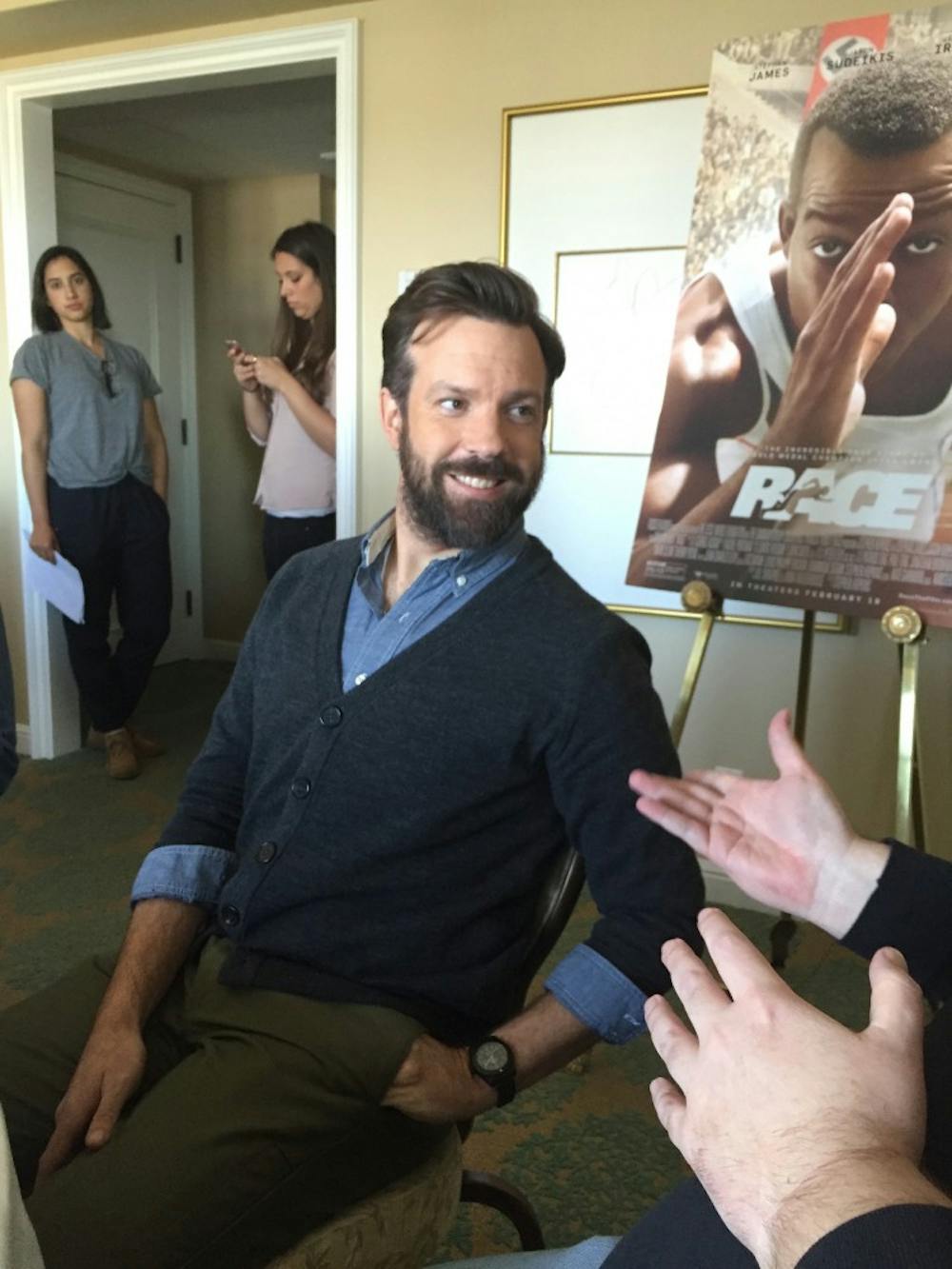This past weekend Focus Features held a press screening for the new Jesse Owens biopic Race, and Street was invited to attend the college roundtable.
Even though they screened it for us in a private theater on Rodeo Drive, the film’s so hot that there’s a press embargo on writing a review of it until February 18th–– but Street has the privilege of providing you with some background information. Plus, we got to sit down with the film’s director, Stephen Hopkins, the star Stephan James, two of Jesse Owens’ daughters and fucking Jason Sudeikis, who played Jesse Owens' coach.

Throughout the process of making the film, Stephan James (of Selma fame) felt the pressure that comes with playing such a beloved American icon, especially one who has many living relatives and adoring fans with knowledge of his history. In preparation for the film, James practiced his running form at the University of Georgia and worked on mimicking the unique cadence of Owens’ speaking voice.
“It was important to me to give him a level of humanity,” Stephan told Street. “From 1936 there were only so many YouTube clips I could find of him speaking and interviews and that sort of thing. I just used his family to fill in the gaps of whatever I couldn’t find online or in the books. I tried to look at myself everyday and see him.”
Throughout the five year course of the movie production, the Owens' family had final script approval. “It wasn’t close (to begin with). It was written by young people who couldn’t translate what happened in those days with what’s happening now,” Marlene Owens told us, describing the original tone of a script that she and her sister Beverly marked up with thousands of pink Post-Its.
But they were impressed with the integrity of the end product. “I think they did a phenomenal job of embracing his character and projecting it, and because we had script approval, we know that the facts were right. And they were extremely cooperative in making the changes after the film was shot if there were things we wanted to tweak.”
Although this was Jason Sudeikis’ first dramatic role, he didn’t feel his playing coach Larry Snyder was a departure from his comedic body of work. “I just wanna work and work with people that tell stories that I believe in, that aren’t inconsequential to the human experience,” he adds. “I’m fortunate I haven’t had to do a role solely for the dough yet. I just want to continue to be the dumbest, least-talented person in the room.”
Still, for a movie titled Race with racial commentary laden throughout, it was surprising how little the personnel wanted to comment on this specific timeliness of the film. The film’s director, Stephen Hopkins commented “I was born in Jamaica and was brought up to be colorblind.” He spoke to the duality of the film’s title, and how it may refer to both the oppressed African American race and the Jewish Americans prevented from running in the games. Hopkins saw the film more as a celebration of a hero than a comment on institutional racism.
When asked about the lack of people of color nominated for Academy Awards this year and the importance of his leading role as a black man, Stephan James dodged the weightier historical significance of his role. “I didn’t see it as a black thing or a white thing. This guy’s a hero. For me it was so much bigger than race. It was more about the way he transcended the world through his love of sport.”
Whether you view it as a film about race or a race, it’s up to you. I wish I could tell you what I think, but Focus Features would come after my ass.







